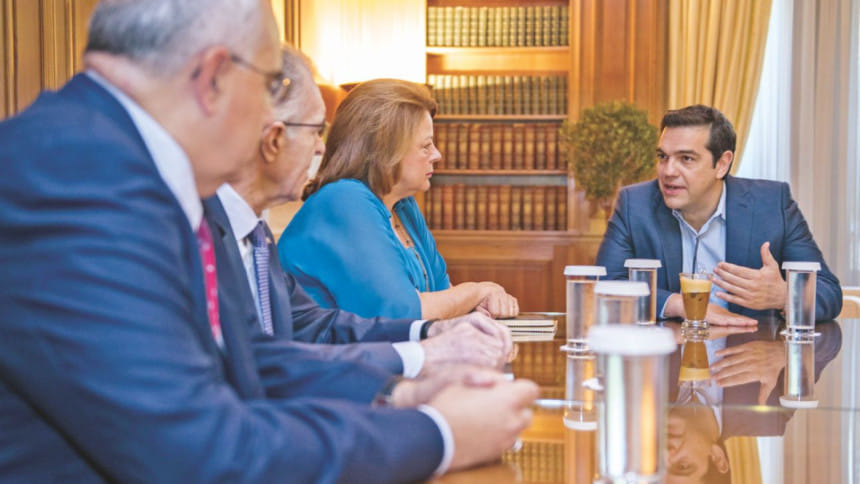Greece to vote on second bailout bill in test for Tsipras

Prime Minister Alexis Tsipras faced a new test of his authority in parliament Wednesday, where MPs were to vote on a second batch of reforms to help unlock a bailout for Greece's stricken economy.
The embattled premier last week faced a revolt by a fifth of the lawmakers in his radical-left Syriza party over changes to taxes, pensions and labour rules demanded by EU-IMF creditors.
Tsipras had to rely on opposition MPs to approve the law, a key condition for opening talks on a three-year bailout worth up to 86 billion euros ($93 billion).
The second bill is less controversial.
MPs were to vote on measures including an EU directive that guarantees bank deposits up to 100,000 euros ($108,000) and civil justice reforms designed to speed up legal proceedings and reduce their cost.
Analysts say the debate will show whether Tsipras can avoid another deep split within Syriza and head off the risk of early elections after only six months in power.
The prime minister received a boost Tuesday when Standard & Poor's raised its credit rating on Greece by two notches to CCC+ from CCC-, still in junk territory but a step in the right direction.
S&P said the scenario of Athens defaulting on its debts was no longer inevitable in the coming year.
As a result, the risk of Greece pulling out of the euro was reduced but still "high," it said.
A "Grexit" may still be on the table as even with a bailout the Greek economy "looks set to remain in a deep and prolonged recession," said Jonathan Loynes, chief European economist at research firm Capital Economics.
"Overall, we expect the Greek economy to contract by about 3 percent this year and possibly much more, with little improvement in 2016," he said.
"Against that background, the new bailout is likely to unravel quickly and a Greek exit from the currency union remains more likely than not."
For Tsipras, who campaigned on an anti-austerity platform, the bailout deal was one he said he had to swallow as there was "no alternative solution".
"I am aware of the responsibility I have taken in making a difficult compromise," he told colleagues at a meeting on Tuesday.
He reshuffled his cabinet just before the weekend, making nine changes, after the party rebellion.
Vassiliki Georgiadis, a political science professor at Athens' Panteion University, said the split was between hard-left MPs -- "some of whom have spoken of a Greek exit from the eurozone as the only solution" -- and those more sympathetic to Tsipras's arguments.

 For all latest news, follow The Daily Star's Google News channel.
For all latest news, follow The Daily Star's Google News channel. 



Comments